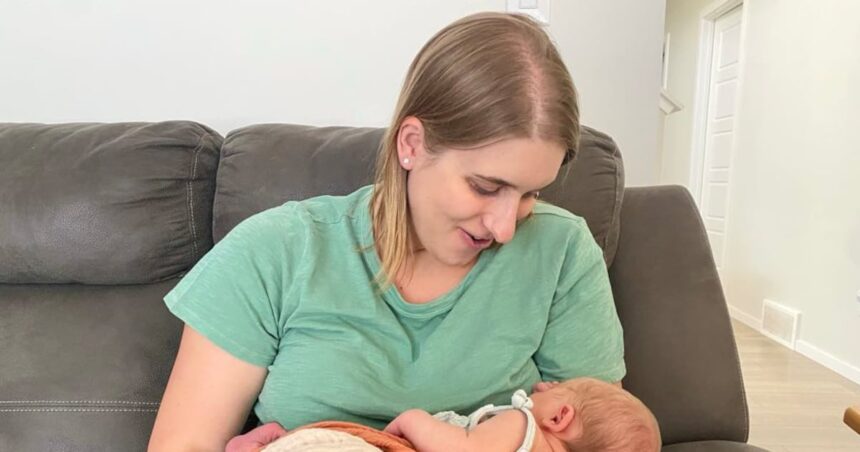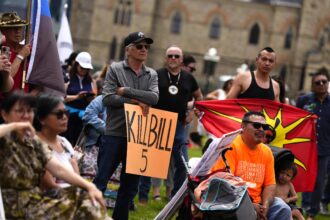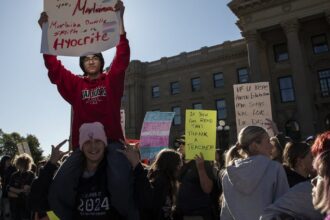In the charred aftermath of devastating wildfires that swept through British Columbia’s Shuswap region, one family’s story of loss has transformed into an unexpected tale of new beginnings. As smoke still lingered in the air over North Shuswap, Jordynn Lehoux and her partner Tyler welcomed their daughter Ember into the world—a poignant symbol of renewal for a family who lost nearly everything to the flames.
“She is making everybody smile,” Lehoux told CO24 News from her hospital bed, cradling her newborn daughter. “After everything we’ve been through, holding her feels like holding hope itself.“
The young family’s ordeal began when evacuation orders forced them to flee their North Shuswap home with little more than the clothes on their backs. Within hours, the Bush Creek East wildfire had consumed their community, reducing their home and possessions to ashes. The couple, already preparing for their daughter’s arrival, found themselves suddenly homeless with a nursery full of baby supplies lost to the inferno.
“We had everything ready—the crib, clothes, diapers—all of it gone,” explained Tyler, who works as a local contractor. “You never think it’ll happen to you until you’re watching your whole life burn on the news.”
The timing couldn’t have been more challenging. At eight months pregnant, Lehoux was forced to navigate the stress of displacement while preparing for childbirth. The couple temporarily relocated to Kamloops, joining thousands of other evacuees seeking shelter and support.
Provincial wildfire officials report that the Bush Creek East fire has consumed over 45,000 hectares and destroyed approximately 200 structures in the region. The Canada News section has documented this as one of the most destructive wildfire seasons in British Columbia’s history.
Yet amid this destruction, the community rallied. When word spread about the expectant parents’ situation, donations began pouring in. Local businesses organized baby showers, strangers offered temporary housing, and family members launched online fundraising campaigns.
“The response has been overwhelming,” said Lehoux’s mother, Karen. “People we’ve never met sending clothes, diapers, even offering us places to stay. It reminds you there’s still good in the world, even when everything seems lost.“
Dr. Amelia Rodriguez, who delivered baby Ember at Royal Inland Hospital, has noted an increase in stress-related complications among pregnant evacuees. “The physiological impact of trauma during pregnancy is significant,” she explained to CO24. “But the human capacity for resilience never ceases to amaze me.”
The couple named their daughter Ember—a name they had chosen months before the fires began, in a coincidence that now seems almost prophetic.
“Ember means ‘glowing fragment from a fire,'” Lehoux explained. “We had no idea how meaningful that would become. She truly is our light from the darkness.”
As British Columbia continues battling what World News sources are calling one of North America’s most severe wildfire seasons, stories like the Lehoux family’s provide crucial emotional sustenance for weary communities. Provincial officials estimate recovery efforts will continue for months, with thousands still displaced across multiple regions.
For now, the new parents are focused on their daughter rather than dwelling on their material losses. They plan to rebuild but acknowledge the road ahead will be challenging. Insurance claims, temporary housing, and the daunting task of starting over loom large.
“Everything we own now fits in the trunk of our car,” Tyler said. “But the most important thing—our family—is intact and growing.“
As Canada confronts increasingly severe climate-related disasters, how will communities balance immediate recovery needs with long-term resilience planning for the families and newborns who represent our future?










